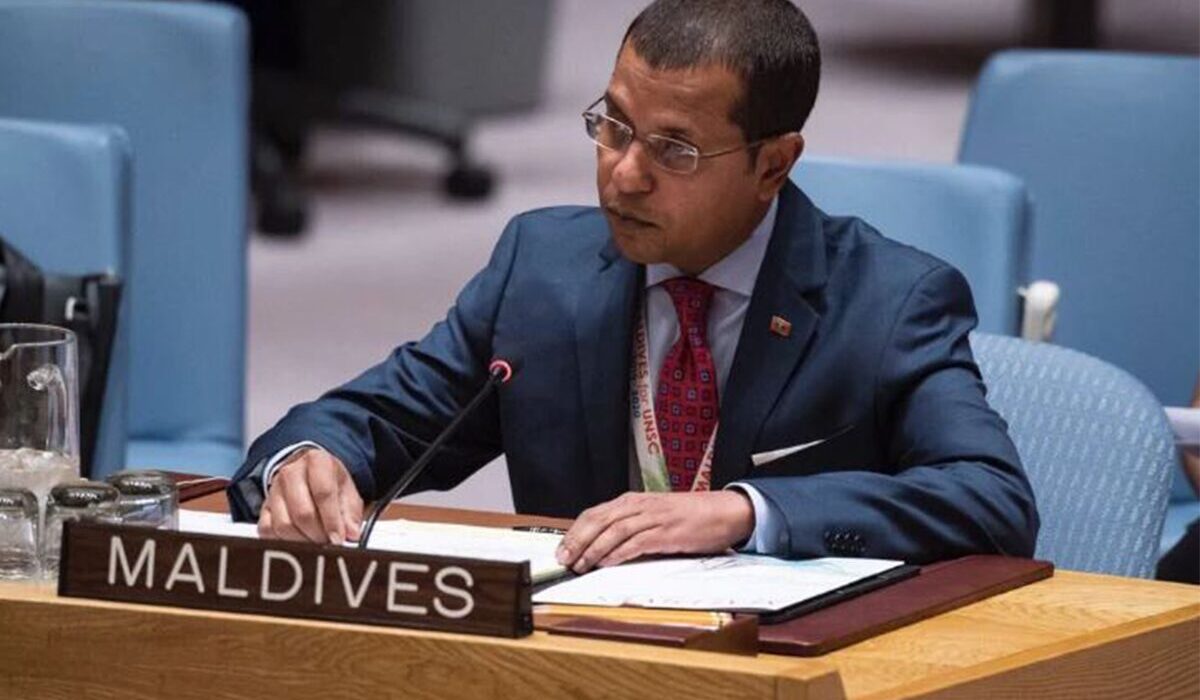New York, USA – The Maldives, Asia’s smallest nation, is grappling with an uncertain future due to the severe impacts of climate change. In an insightful discussion, Ambassador Ali Naseer Mohamed, the Permanent Representative of the Maldives to the United Nations, shed light on the nation’s efforts to protect its unique biodiversity and strengthen resilience in the face of these challenges.
Speaking with journalist Elaine Reyes, Ambassador Naseer emphasized the critical role biodiversity plays in the Maldives’ identity and economy, particularly through tourism and fishing. “The Maldives, often celebrated as an exotic tourist destination, derives much of its allure from its biodiversity,” he said. “However, climate change poses a significant threat to this fragile ecosystem.”
The ambassador highlighted the Maldives’ history of global environmental advocacy, recalling its hosting of the first-ever Small States Conference on Sea Level Rise in 1989. “At that conference, we called on the international community to take urgent measures to reduce carbon emissions, build resilience, and protect biodiversity,” he noted.
President Dr. Mohamed Muizzu’s recent address at COP29 was also a focal point. The president described the environment and ocean as integral to the Maldivian identity, declaring their protection a “sacred duty.” Ambassador Naseer echoed these sentiments, emphasizing the deep cultural connection Maldivians share with the sea. “For Maldivians, the ocean is not just a resource—it is sacred and central to our way of life,” he said.
The Maldives faces unique challenges in financing climate adaptation and resilience projects due to its small economy. “Wealthier nations can allocate substantial funds for resilience, but for smaller nations like ours, the costs are disproportionately higher,” Ambassador Naseer explained. He reiterated the Maldives’ call for increased global investment in resilience and adaptation measures, describing such investments as crucial for safeguarding vulnerable nations.
Reflecting on the devastating 2004 Indian Ocean tsunami, Ambassador Naseer detailed how the tragedy spurred a shift in the nation’s approach to disaster preparedness. “The tsunami taught us that we must work with nature and prioritize resilience,” he said. In its aftermath, the Maldives introduced radical changes in infrastructure design, adopting “safe island” development strategies to withstand natural and human-induced disasters.
He also praised advancements in regional coordination and technology, such as the Indian Ocean’s early warning systems, which significantly enhance disaster response capabilities. “Today, with mobile applications and rapid information dissemination, we are better equipped to minimize damage, prevent loss of life, and educate the public on disaster response,” he said.
Ambassador Naseer concluded with a hopeful appeal for global solidarity. “The trillions needed to combat climate change must come from wealthier nations, both developed and developing,” he stated. “Investing in resilience benefits everyone, creating a safer and more sustainable future for all.”
The Maldives continues to stand at the forefront of global climate advocacy, urging immediate and collective action to protect vulnerable nations and preserve the planet’s biodiversity for future generations.



